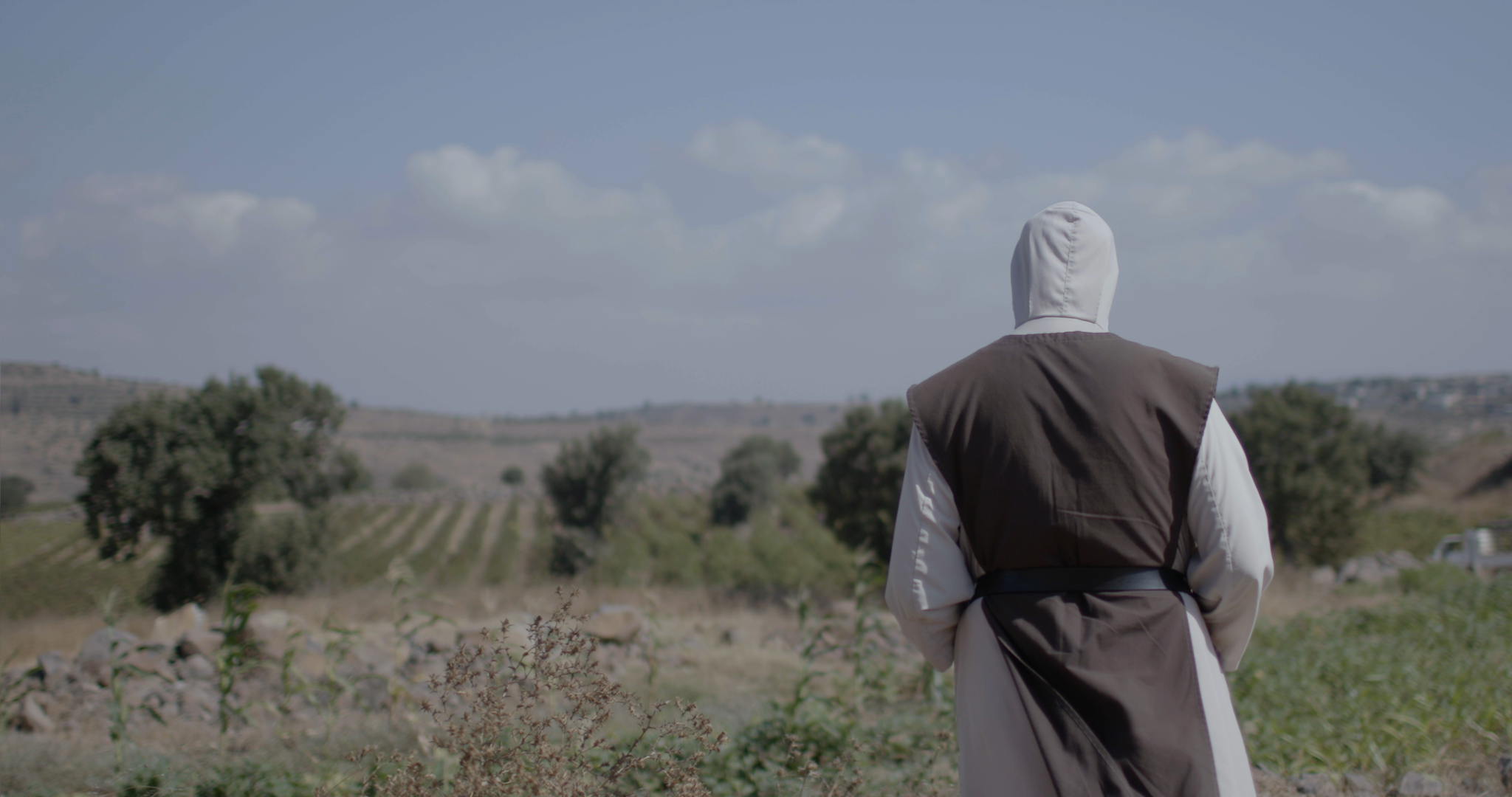
When I came to the winery for the harvest, the first day the truck arrived, I tasted the juice, it was good, I did taste it. Two days later it started to be sparkling, it started to have bubbles into it. So I was wondering what it was, and I understood that this was the miracle of the wine, the miracle of life. This is why I became a believer in life.
– Lebanese winemaker, Serge Hochar
Lebanon: a corner of the world that has been stricken by a continued and persistent plague, the plague of war. Lebanon lies in the tumultuous Middle East, flanked by the civil wars of Syria, the chaos and carnage in Iraq, and somehow in the middle of the seemingly constant conflict between Hezbollah and Israel. We might be tempted to see it as a backwater, a tragic land ruled by violence and warlordism, and of course, not a place out of which you would expect any kind of high culture to arise, not because the people living there lack in sophistication but because of the difficulty in building anything of substance when violence and destruction are so prevalent.
The usual (we might say, “natural”) pattern, is that once corruption and violence take hold of a region, this cycle of violence is perpetuated because grievances create the desire for justice and revenge, which then lead to more grievances in reaction to the initial injustice, which then invite an escalated response, and so it goes. The cycle repeats, each time increasing in volume, increasing in destruction, and increasing in scope.
However, one of the ironies about good art, profound poetics, and lasting aesthetics, is this reoccurring miracle, a miracle that we see throughout history: again and again we see situations where beauty is borne out of pain, and transcendence is born out of depravity.
This lovely little film, Wine and War, offers a glimpse into a kind of counter-narrative and an exploration of the ways in which this cycle might be broken.
In one story, Naji and Jill Boutros, a husband and wife team of winemakers, got word while studying abroad that there was a massacre in their hometown of Bhamdoun. Five hundred people were murdered. After the massacre, Naji says that he was filled with hatred “against human beings” and that he felt useless, and lacked any hope that he could make a difference. But ultimately Naji and Jill came to the conclusion that justice is sought “by planting and beautifying things.”
They decided to pursue this “justice” using vineyards to reattach people to their own land. Rather than engaging in the cycle of revenge, they said to each other, “We are going to heal the wounds of war through wine.”
They then returned home, planted a vineyard at Naij’s father’s old hotel, which had been destroyed, and planted vineyards all over the town “as a symbol of resurrection.” In order to get the younger generation to care about the land, they started recruiting them to harvest grapes during season, which created community, connection and knowledge of the whole valley. For the Boutros family this was about ushering in the next generation into “communion” with the land and with each other.
Planting a vineyard became the ultimate symbol for that spirit which opposes the forces of conflict and war. They were, in this regard, combatting the short term and cyclical thinking of conflict and replacing it with a long-term vision. When you plant a winery, they explain, you are planning for a minimum of 20 years.
Nearly all of the winemakers struggling to bring life out of barrenness and community and connection out of the scars of war have incredibly profound things to say. Here are some examples:
“Wine is the link between God and humanity,” said one. Wine is not another product, it is another life, and because we cannot master and control life, we cannot pretend that we can control wine.
“Wine is a permanent miracle, and you have to believe.”
Wine is “a toast to love and humanity.”
Wine is not just a repackaging of a bottle and a price, it is “a soul, and the soul of life is nowhere stronger than when you are able to make wine from this region.”
“Your interpretation of the wine depends on your identity, on your soul, on your body. This is how you learn to taste life slowly.”
“We are not done with this bottle of wine yet,” says one winemaker to the filmmakers. For her that means that you cannot form a conclusion about it, cannot judge it because it still has secrets to reveal, mysteries to unfold. She likes to open a bottle of wine at 3pm in the afternoon and tries to make it last until 9pm in the evening, interacting with it as the living thing that it is.
Long term thinking, connection to the land, the miracle of life, redemption, hope, and intergenerational communion through wine, the “link between God and humanity” – one thing is for sure, like a great wine, this film has depth!
Wine and War is available to stream on Amazon Prime (as of the publication of this review) and available to rent from most streaming services.
When I came to the winery for the harvest, the first day the truck arrived, I tasted the juice, it was good, I did taste it. Two days later it started to be sparkling, it started to have bubbles into it. So I was wondering what it was, and I understood that this was the miracle of the wine, the miracle of life. This is why I became a believer in life.
– Lebanese winemaker, Serge Hochar
Lebanon: a corner of the world that has been stricken by a continued and persistent plague, the plague of war. Lebanon lies in the tumultuous Middle East, flanked by the civil wars of Syria, the chaos and carnage in Iraq, and somehow in the middle of the seemingly constant conflict between Hezbollah and Israel. We might be tempted to see it as a backwater, a tragic land ruled by violence and warlordism, and of course, not a place out of which you would expect any kind of high culture to arise, not because the people living there lack in sophistication but because of the difficulty in building anything of substance when violence and destruction are so prevalent.
The usual (we might say, “natural”) pattern, is that once corruption and violence take hold of a region, this cycle of violence is perpetuated because grievances create the desire for justice and revenge, which then lead to more grievances in reaction to the initial injustice, which then invite an escalated response, and so it goes. The cycle repeats, each time increasing in volume, increasing in destruction, and increasing in scope.
However, one of the ironies about good art, profound poetics, and lasting aesthetics, is this reoccurring miracle, a miracle that we see throughout history: again and again we see situations where beauty is borne out of pain, and transcendence is born out of depravity.
This lovely little film, Wine and War, offers a glimpse into a kind of counter-narrative and an exploration of the ways in which this cycle might be broken.
In one story, Naji and Jill Boutros, a husband and wife team of winemakers, got word while studying abroad that there was a massacre in their hometown of Bhamdoun. Five hundred people were murdered. After the massacre, Naji says that he was filled with hatred “against human beings” and that he felt useless, and lacked any hope that he could make a difference. But ultimately Naji and Jill came to the conclusion that justice is sought “by planting and beautifying things.”
They decided to pursue this “justice” using vineyards to reattach people to their own land. Rather than engaging in the cycle of revenge, they said to each other, “We are going to heal the wounds of war through wine.”
They then returned home, planted a vineyard at Naij’s father’s old hotel, which had been destroyed, and planted vineyards all over the town “as a symbol of resurrection.” In order to get the younger generation to care about the land, they started recruiting them to harvest grapes during season, which created community, connection and knowledge of the whole valley. For the Boutros family this was about ushering in the next generation into “communion” with the land and with each other.
Planting a vineyard became the ultimate symbol for that spirit which opposes the forces of conflict and war. They were, in this regard, combatting the short term and cyclical thinking of conflict and replacing it with a long-term vision. When you plant a winery, they explain, you are planning for a minimum of 20 years.
Nearly all of the winemakers struggling to bring life out of barrenness and community and connection out of the scars of war have incredibly profound things to say. Here are some examples:
“Wine is the link between God and humanity,” said one. Wine is not another product, it is another life, and because we cannot master and control life, we cannot pretend that we can control wine.
“Wine is a permanent miracle, and you have to believe.”
Wine is “a toast to love and humanity.”
Wine is not just a repackaging of a bottle and a price, it is “a soul, and the soul of life is nowhere stronger than when you are able to make wine from this region.”
“Your interpretation of the wine depends on your identity, on your soul, on your body. This is how you learn to taste life slowly.”
“We are not done with this bottle of wine yet,” says one winemaker to the filmmakers. For her that means that you cannot form a conclusion about it, cannot judge it because it still has secrets to reveal, mysteries to unfold. She likes to open a bottle of wine at 3pm in the afternoon and tries to make it last until 9pm in the evening, interacting with it as the living thing that it is.
Long term thinking, connection to the land, the miracle of life, redemption, hope, and intergenerational communion through wine, the “link between God and humanity” – one thing is for sure, like a great wine, this film has depth!
Wine and War is available to stream on Amazon Prime (as of the publication of this review) and available to rent from most streaming services.

Justin Wells is a documentary filmmaker and author. Find more of his work at justinwellsfilms.com.
In How to Film Truth, Justin Wells explores the history of documentary filmmaking as a search for truth by filmmakers, and a journey of discovery for subjects and audiences.